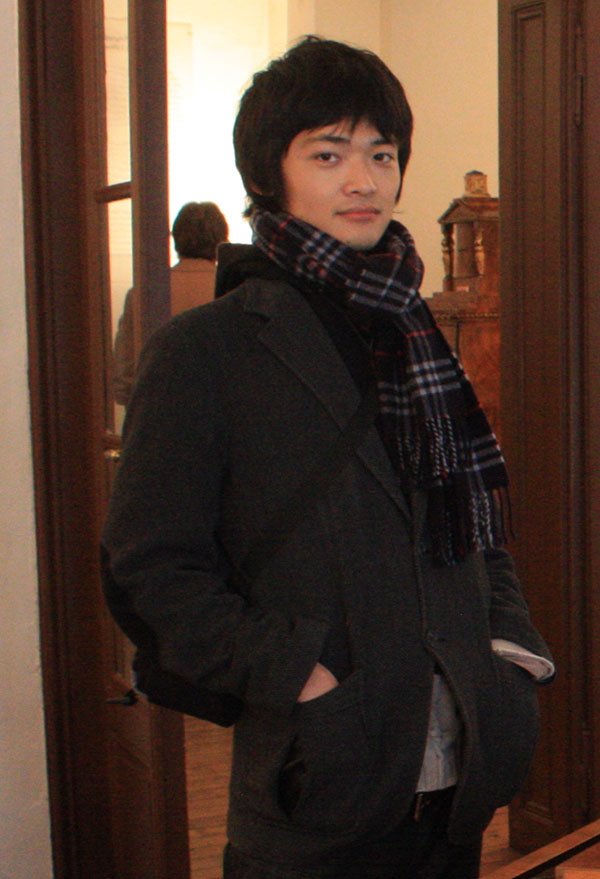IC Postdoc participant researches behavioral responses to disease dynamics
Meet Yun Tao
In recent years, disease and behavioral research have experienced groundbreaking progress as a result of technological and theoretical advancements. However, though epidemiologists can now provide reliable forecasts on how infectious diseases may spread through populations, other areas of prediction remain very limited.

As part of the Intelligence Community (IC) Postdoctoral Research Fellowship Program, Yun Tao, Ph.D., conducted disease and behavioral research. Photo Credit: Yun Tao
In the face of highly infectious diseases such as coronavirus or influenza, there is a growing need to improve our ability to predict factors such as our behavioral responses to outbreaks, local levels of compliance with control protocols and much more. Yun Tao, Ph.D., was recently able to contribute to the advancement of disease and behavioral modeling through the Intelligence Community (IC) Postdoctoral Research Fellowship Program.
Established in 2000, the IC Postdoc Program offers scientists and engineers from a wide variety of disciplines unique opportunities to conduct research relevant to the Intelligence Community.
Tao served his appointment at the University of California, Santa Barbara (UCSB). Under the guidance of his mentor Kevin Lafferty, Ph.D., a senior scientist for the U.S. Geological Survey (USGS) and adjunct faculty for UCSB, Tao conducted disease and behavioral research to improve understanding of disease outbreak and surveillance.
Throughout the course of his fellowship Tao contributed to various projects focused on developing models for predicting behavioral responses to disease dynamics.
One project examined the reliability of classic ecological (including disease) predictions in the context of environmental changes as characterized by habitat fragmentation and extreme climate events. Another project examined animal and human movement dynamics, with the goal of identifying implications for predicting zoonotic spillover. Other projects included the study of bat flight patterns in connection to Nipah virus, ungulate movement underlying Bovine Tuberculosis and Rift Valley Fever and operational aspects of outbreak response. This includes aspects such as how competing livestock culling or vaccine deployment strategies may perform given different population structures and the consequences of low-certainty, patchwork responses.
Hear from Yun Tao about his experiences with the IC Postdoc Program on the ORISE Featurecast Podcast!
Tao’s research will help predict how the behavior of infective hosts, at-risk individuals and even healthcare personnel vary over the course of an epidemic as a consequence of individual pathology, group incentives and control strategies during the outbreak intervention stage. He hopes that one day his efforts will provide decisional advantages and help enhance management strategies and national security related to outbreak surveillance and intervention.
“My research is primarily motivated by our need to better understand the dynamic interactions between epidemiological, environmental, social and operational factors,” said Tao.
“Advancing models in this area could provide significant advantages to outbreak surveillance, epidemic forecasts, and management efforts during public health crises when information is uncertain. My fellowship experience highlighted for me the importance of being able to rapidly provide informed decisions during emergencies even under unanticipated logistical constraints.”
Through his participation in the IC Postdoc program, Tao honed his communication and collaborative skills. He had the opportunity to collaborate with many experts across multiple disciplines at various universities and agencies, and gained valuable insight into meshing theoretical understanding with practical solutions. His research was recently published in Proceedings of the National Academy of Sciences (PNAS) and Journal of the Royal Society Interface.
Tao highly recommends the IC Postdoc Fellowship Program to others, emphasizing the value of putting research into practice.
“I firmly believe traditional scientists should gain critical awareness of how their works are considered and applied outside of an academic setting,” said Tao. “This perspective is important in order for scientists to extend their research goals to what is achievable in practice.”
Tao graduated from the University of Arizona with a bachelor’s degree in ecology and evolutionary biology in 2008, followed by his doctoral degree in ecology from the University of California, Davis in 2014. Following the conclusion of his fellowship, Tao hopes to pursue a scientific career that would allow him to remain involved in government agencies and academic institutions.
The Intelligence Community Postdoctoral Research Fellowship Program is funded by the Office of the Director of National Intelligence (ODNI) and managed by the Oak Ridge Institute for Science and Education (ORISE) under an agreement between the IC and the U.S. Department of Energy (DOE). ORISE is managed for DOE by ORAU.

